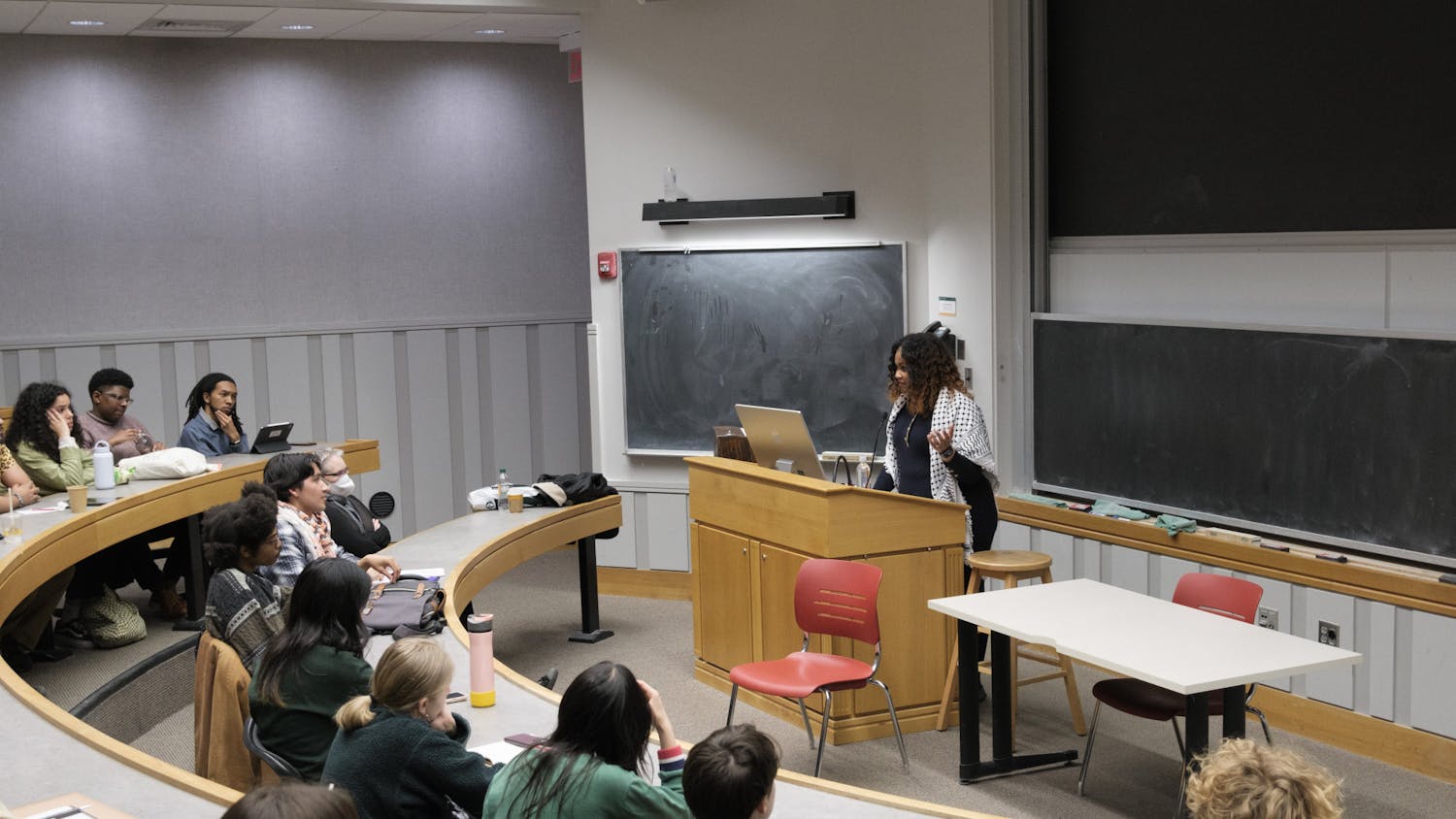And when they had left the room, all hopes that alumni could wrest control of Dartmouth were gone.
In a sweeping report released today, the Dartmouth Board of Trustees announced drastic changes to the College's governance structure, ending the 116-year-old parity between trustees picked by alumni and those picked by the Board. The Board also announced changes to the method of trustee elections.
Despite vocal alumni campaigns against any alterations, the Board will increase its size to 26. The eight new trustees will be "charter trustees" selected by the Board itself, rather than alumni.
The Board also voted to mandate that the Alumni Council nominate one or two candidates for membership, rather than the three formerly required. The petition process for alumni trustee elections will remain intact.
Board Chairman Ed Haldeman '70 said that the move was beneficial because it increased the Board's size and potential for diversity.
"We're excited about greater alumni involvement on the Board," Haldeman said, explaining that 26 alumni will be trustees, not 18.
Now, however, although more alumni will sit on the Board, the alumni body on whole will be able to elect a much smaller portion of the Board.
Opponents of this change have argued that Dartmouth alumni's ability to elect such a large portion of the College's Board has allowed Dartmouth to maintain its undergraduate focus and many of its other traditions.
In recent years, four alumni, T.J. Rodgers '70, Peter Robinson '79, Todd Zywicki '88 and Stephen Smith '88, won election to the Board on similar platforms of change. The apparent conflict between these four petition-elected candidates, the rest of the Board and the administration is at the heart of today's changes to the College's governance structure.
Under the old system, had the remaining four alumni seats gone to likeminded candidates, the petition trustees would have been one vote from a majority (the governor of New Hampshire traditionally does not vote). Now those elected by the alumni will never be close to an absolute majority without the support of other Board members.
In a letter to alumni dated Aug. 6, Rodgers, Robinson, Zywicki and Smith all publicly opposed any change that decreases the portion of the Board that the alumni elect.
Attempts by The Dartmouth to reach Robinson and Zywicki after today's meeting were unsuccessful.
Haldeman also spoke of the importance of maintaining a diverse Board and how the new composition of the Board will allow for greater diversity. The chairman said that an ideal Board would be diverse in terms of race, age, gender, abilities and viewpoints and that additional seats for charter trustees will allow the Board to achieve that diversity.
"With charter seats, one gets to make sure that you meet the needs of Dartmouth with regard to making sure that we have a diverse board in terms of skill sets - the specific skills sets that are necessary - and in every other sense of the word diversity," he said.
Haldeman said that a Board that relied too heavily on elections to fill its seats could not achieve adequate diversity.
At the beginning of the meeting, College President James Wright recused himself from the Board's debate and vote, he told The Dartmouth.
"I just didn't want my role to be part of the consideration," he said.
Wright turned down requests for comment about the Board's decision.
The announcement represents the culmination of a study by the Board's governance committee that the committee says was aimed to address growing concern over the politicized nature of the trustee system at the College.
"The Alumni Trustee nomination process has recently taken on the characteristics of a partisan political campaign, becoming increasingly contentious, divisive, and costly for the participants," the governance committee said in a June statement. "Alumni have also raised questions about the fairness of the multiple-candidate, approval-voting, and plurality-winner features of the process. We believe these issues must be addressed, lest many highly qualified alumni be dissuaded from seeking nomination."
Others have suggested that the Board undertook the review so as to fend off threats to the Board's ruling majority and to the Wright administration's policies.
The fallout from today's announcement is not yet known, although the Association of Alumni executive committee has retained the Washington-based law firm of Williams & Connolly to explore legal options. After the meeting, Haldeman said he did not know whether the College would be sued as a result of this decision.
Haldeman said that he hopes, in the aftermath of this contentious change, that the trustees act similarly to the Board that enacted co-education at Dartmouth in 1972.
"All the public statements thereafter were supportive," he said. "I would hope our trustees would follow that same model."



